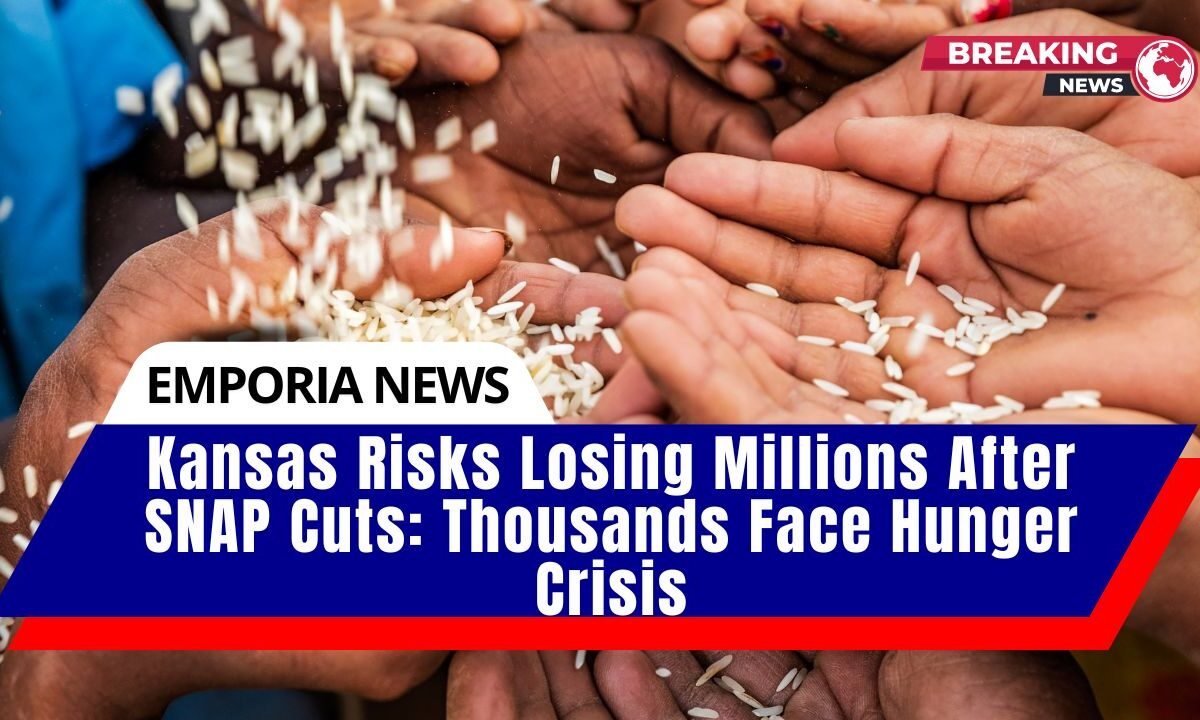Kansas is confronting a potential hunger crisis following major changes to the Supplemental Nutrition Assistance Program (SNAP) enacted by Congress.
The reforms shift more of the program’s cost burden to individual states. If state lawmakers don’t allocate additional funding, food banks like Harvesters warn they won’t be able to bridge the gap, leaving thousands of Kansans without reliable access to food.
Volunteers Step Up Amid Growing Concerns
At the Harvesters food bank distribution center in Lawrence, Kansas, volunteers like Steve Vossler are doing their part.
During his 56th shift of the year, Vossler packed produce and discussed his worries about the recent federal changes. He’s among many who fear these new rules will force more people to rely on already-stretched food banks.
What’s Changing in SNAP?
The SNAP reforms, part of the “One Big Beautiful Bill” signed by former President Trump, bring significant changes:
- States now cover 75% of administrative costs, up from 50%, raising Kansas’ share by $15 million.
- New work requirements apply to previously exempt groups like veterans, the homeless, and adults aged 55–64.
- States must meet strict payment accuracy standards or face steep financial penalties.
If Kansas doesn’t lower its current error rate, it could be forced to pay an additional $41 million annually, pushing the total SNAP cost increase to $56 million.
Impact on Vulnerable Populations
According to the USDA, more than two-thirds of SNAP recipients are children, seniors, or people with disabilities. Critics argue the new work rules may not boost employment but will instead prevent many eligible families from accessing food aid.
Governor Laura Kelly emphasized the urgency of addressing administrative challenges:
“If we don’t bring the error rate down, it’ll just cost us so much more.”
She confirmed that Kansas has until October 2026 to make improvements and avoid penalties.
Food Banks Can’t Carry the Burden Alone
Stephen Davis, CEO of Harvesters, knows firsthand what food insecurity feels like. In 2023, his organization worked with 900 nonprofits to deliver over 52.5 million meals across 17 Kansas counties. But he warns that without SNAP, they can’t meet growing demand.
“For every meal we provide, SNAP provides nine,” Davis said.
Further complicating matters, the federal government recently canceled food shipments to food banks, including Harvesters. Davis fears these combined changes will overwhelm the system and lead to increased hunger statewide.
Kansas stands at a crossroads. With rising costs, strict penalties, and broader eligibility checks, the state must act quickly to preserve access to critical food assistance. Without intervention, thousands may fall through the cracks, and food banks alone cannot fill the void.




